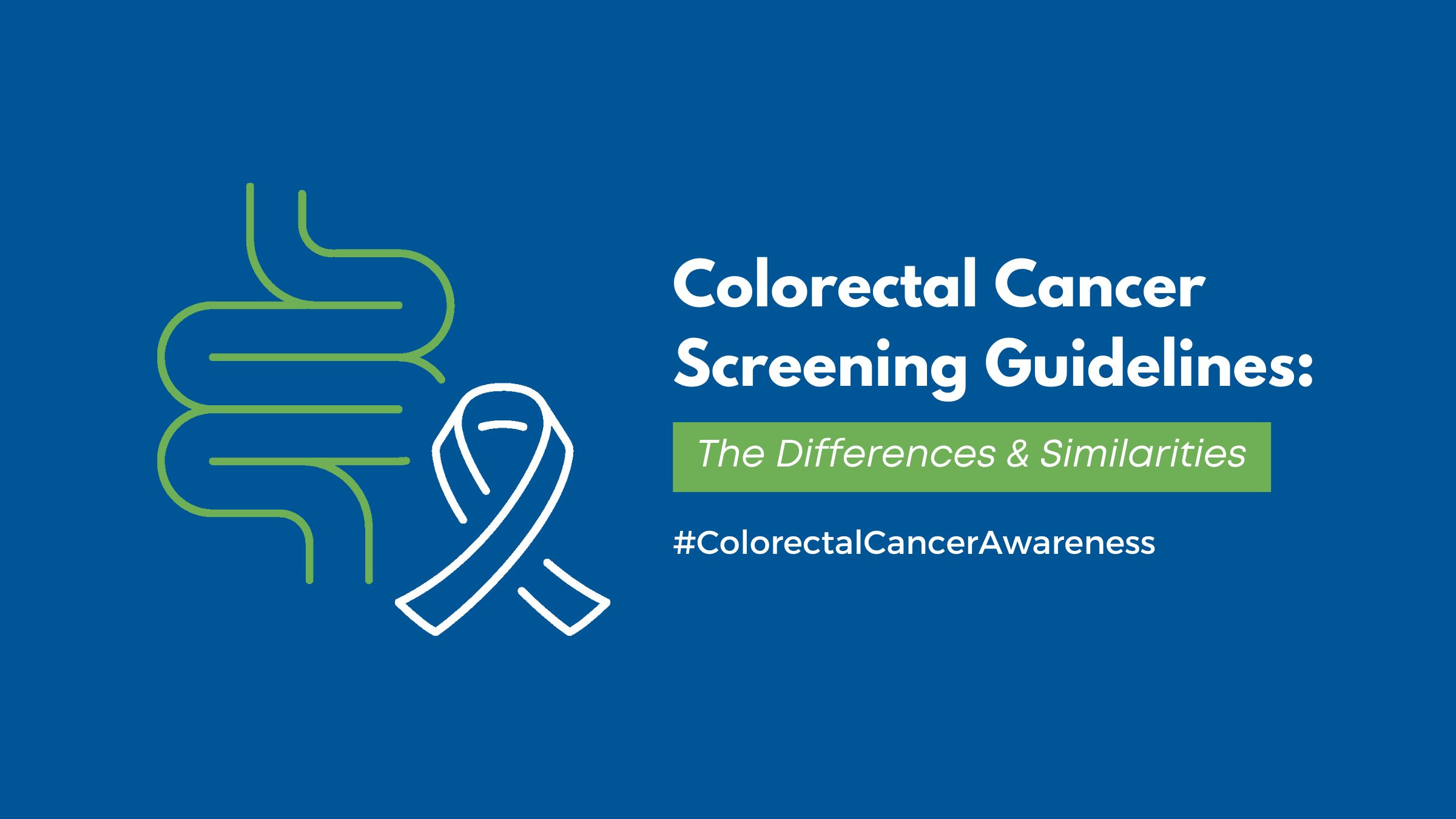
The month of March is dedicated to National Colorectal Cancer Awareness Month – an annual campaign aimed at increasing awareness of colorectal cancer (CRC) and the importance of cancer screenings, as well as promoting healthy lifestyle habits for primary prevention in reducing the risk of developing CRC.
Despite being the 2nd leading cause of cancer-related deaths and 3rd most commonly diagnosed cancer in the US, close to 1 in 3 adults over the age of 50 are not up to date on CRC screenings. So to support the initiatives in educating providers, patients and the community about CRC, this article will discuss various available clinical practice guidelines on best practice recommendations for the prevention, screening, diagnosis, treatment and management of CRC.
There have been over a half a dozen clinical practice guidelines published in the United States alone on the topic of Colorectal Cancer Screening. These guidelines agree on some points and disagree or differ on others. There are multiple reasons for differing guidelines, including differences due to:
- Differences in guidelines scope – some guidelines focused on average risk only, while others included all patients and risk types.
- Differences in methodology – for example, some guidelines are consensus, others GRADE.
- Age and literature review timelines – spanning 2017 to 2022.
- Development from different medical vantage points, from primary care, to oncologists to gastroenterology, to government agencies.
The 2023 Consensus & Physician Experts (CPE): Colorectal Cancer Screening Guidelines Toolkit highlights the similarities, differences, screening risks, quality measures of 8 CRC guidelines in addition to a lot more.
Colorectal Cancer Screening Guidelines Toolkit
- 2021 ACG: Colorectal Cancer Screening 2021
- 2021 USMSTF (ACG/AGA/SAGES): Age to Start and Stop Colorectal Cancer Screening
- 2021 USPSTF: Colorectal Cancer: Screening
- 2019 ACP: Screening for Colorectal Cancer in Asymptomatic Average-Risk Adults
- 2019 ASCO: Early Detection of Colorectal Cancer
- 2018 ACS: Colorectal Cancer Screening for Average‐Risk Adults
- 2017 ACG/AGA/ASGE: Colorectal Cancer Screening
- 2017 ACG/AGA/ASGE: Fecal Immunochemical Testing to Screen for Colorectal Neoplasia
Other CRC Guidelines: Treatment & Management Recommendations
- 2022 ASCO: Treatment of Metastatic Colorectal Cancer
- 2022 ASCRS: Management of Colon Cancer
- 2021 ASCRS: Surveillance and Survivorship Care of Patients After Curative Treatment of Colon and Rectal Cancer
- 2020 ASCO: Treatment of Patients with Late-Stage Colorectal Cancer
- 2020 ACG/AGA/ASGE: Endoscopic Recognition and Management Strategies for Malignant Colorectal Polyps
- 2019 ASCO: Treatment of Patients with Early-Stage Colorectal Cancer
- 2020 ACG/AGA/ASGE: Endoscopic Removal of Colorectal Lesions
- 2017 ASCRS: Treatment of Colon Cancer
- 2017 ASCP/ASCO/AMP/CAP: Molecular Biomarkers for the Evaluation of Colorectal Cancer
Colorectal cancer is a significant public health concern that affects millions of people worldwide, and early detection and prevention are crucial in reducing the burden of this disease. As healthcare providers, we play a critical role in educating our patients about the importance of screening and adopting healthy lifestyle habits to reduce their risk of developing cancer.
By implementing the clinical practice guideline recommendations discussed in this article, we can provide evidence-based, high-quality care to our patients and ultimately help prevent and reduce the impact of colorectal cancer. Let us continue to raise awareness and prioritize the prevention and early detection of colorectal cancer, not just during March and Colorectal Cancer Awareness Month, but all year-round.
Copyright © 2023 Guideline Central, All rights reserved.